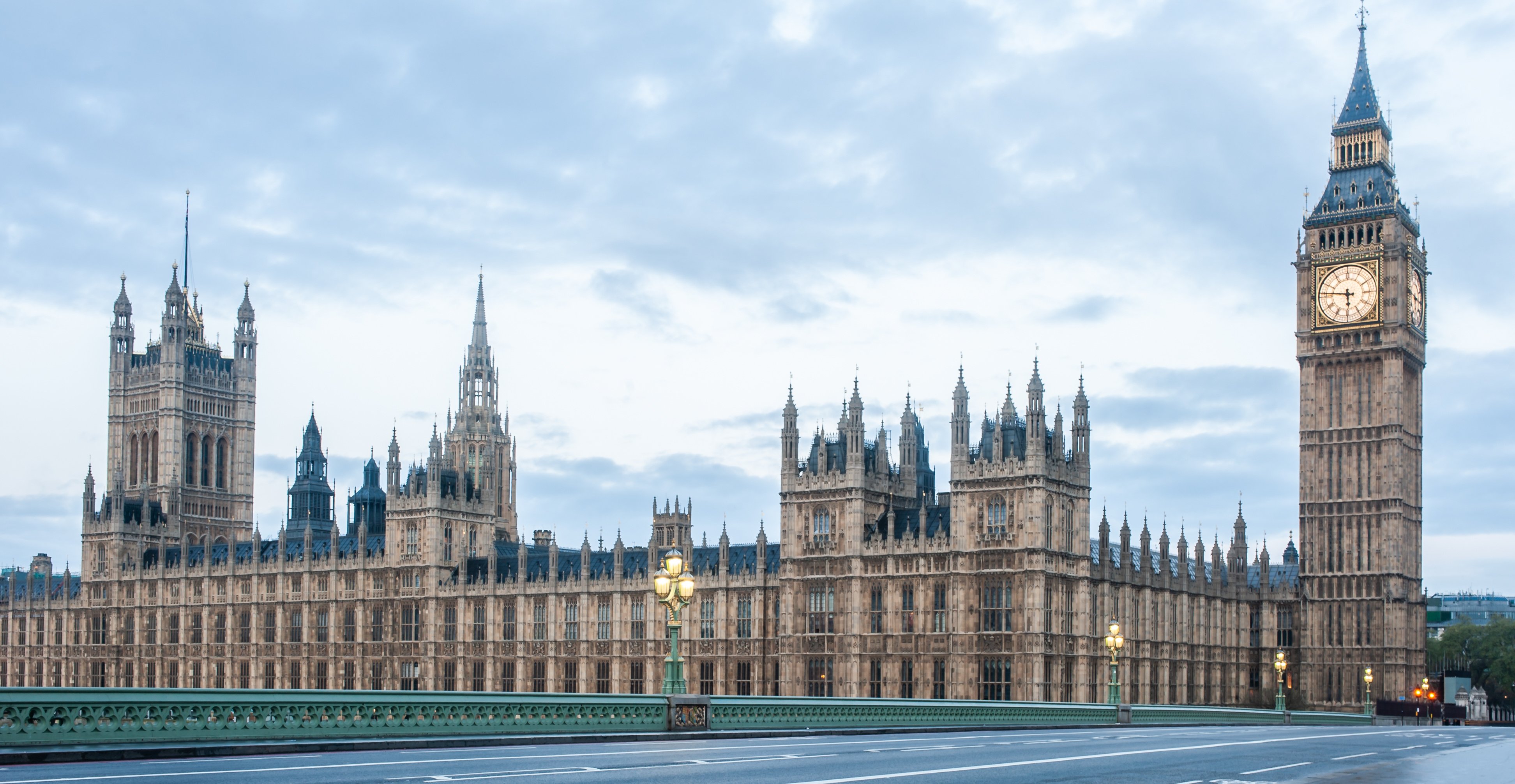Is Europe offering a Third Way in technology regulation?
by Inline Policy on 19 Feb 2019
Rapid technological transformations driven by US and Chinese companies are posing a serious challenge to Europe's policymakers. Third way politics looks set to shape much of the regulatory response.
The driving force behind such thinking would be Europe’s steadfast commitment to a social market economy which requires technology to be deployed for wealth creation and the public good in equal measure.
It is a fascinating assumption for many reasons: the power of the digital sphere nowadays affects everything from politics and diplomacy to society, ethical norms and community cohesion. While US multinationals continue to dominate the world wide web, China has created its own giants of the internet that do not want to restrict their activities to the home market. Both countries invest billions to shape the future of artificial intelligence, predictive analytics, cloud computing or quantum technology. Europe, in contrast, risks being left behind.
Any third way approach could therefore easily be dismissed as a mere defensive reaction to those developments. If you cannot compete at the highest level, make sure you protect what you have, in particular where digital innovations permeate precious offline sectors that are already highly regulated, such as healthcare, transport, energy or education. From that perspective, despite some lofty goals, the EU’s Digital Single Market (DSM) agenda has done little to achieve the same liberalising effects and objectives that underpinned previous rounds of EU internal market reforms. Instead, the emphasis seems to be on risk mitigation and the protection of the status quo.
The quest for global influence
There is, of course, also a different take – one which is more ambitious and based on an optimistic vision of how Europe can influence the global debate about the rules, practices and foundations of the internet. In essence, a third way approach that borrows more directly from its political predecessor and philosophy.
When US President Bill Clinton and the then UK Prime Minister Tony Blair pushed for a new kind of politics “beyond left and right” during the 1990s, policymakers struggled to make sense of the new socio-economic realities that resulted from the fall of the Iron Curtain and the subsequent opening-up of the world economy. Economic globalisation and cultural modernisation created deep dividing lines in both politics and society. In response, third way advocates developed a set of principles that sought to provide a powerful guide to policy reform, while positioning their approach as the best way to avoid the excesses of rampant, neo-liberal capitalism on the one side, and the deficiencies of state socialism on the other. It became an electoral winning formula for many years.
In many respects, there are parallels between the global upheaval that third way political thinking was responding to and the unprecedented rate of technological development and disruption that policymakers face today.
So, is Europe adopting third way principles in its quest to master the rapid technological transformations, many of which continue to be driven out of the US and China? A closer look at a number of regulatory battlegrounds helps to make sense of this question.
Active government
Unlike proponents of the free market who view most state interventions with natural suspicion, supporters of the third way regard an active government as a precondition for achieving socially and economically just outcomes. At EU level, this principle is embodied most forcefully by Competition Commissioner Margarethe Vestager, whose high-profile antitrust interventions have caused serious shock waves across the Atlantic in the last few years. The premise is clear: existing competition law is deemed unfit for the 21st century digital economy in which a small number of big tech companies would be able to exploit their overly dominant market position.
Recent fines against Google and Apple, or the current (preliminary) investigations into the way in which Amazon uses data from third-party sellers, are not the only story. Individual EU Member States are also taking decisive action, for instance in Germany where a few weeks ago the Federal Cartel Office banned Facebook from merging different data sources (i.e. Instagram and WhatsApp) across its platforms. Add to this the ongoing reviews in the UK, France and other countries and the direction of travel becomes evident. Europe’s answer is likely to come in the form of many meticulous regulatory adjustments; not in a blueprint for a different kind of digital architecture or a more fundamental rethink of how to address the structural shift towards an intangible economy.
Equality of opportunity
The fight for a seemingly ‘fairer’ digital marketplace has actually several fronts, as well as different rationales. One of them is the third way principle of ensuring equal opportunity (as opposed to a more pronounced focus on equal outcomes) – laboriously applied in the attempt to reconcile the blurred interests of consumers, producers and economic actors in the fast-growing platform economy where individuals often perform multiple roles.
The European Commission’s transparency agenda is a case in point. Last year, the proposed Platforms-to-Business Regulation (P2B) set out wide-ranging requirements for how platforms that list commercial products and services must open up their ranking decisions, paid listings and data collection practices. The idea is to create a new benchmark for transparency in the digital marketplace that serves both continuous innovation and the protection of (vaguely defined) “European values”. While enforceable rules are still some time away, this distinct approach is now firmly anchored within the EU institutions and will surely outlive the forthcoming elections to the European Parliament and the change of Commission later this year.
Rights and responsibilities
One area where Europe currently tries hardest to impose its own philosophy is social media content regulation, very much along the lines of third way thinking on balancing rights and responsibilities. The basic charge against mainly US technology firms is this: protecting free speech must not happen at the expense of internet safety; any form of ‘online harms’, including both harmful and illegal content, should be tackled head-on, even if this requires difficult decisions about what kind of information ought to be censored. Social media platforms need to accept a moral obligation and duty toward society in order for their business model to survive. Nothing less will do.
First EU interventions are already showing some results: in early February, the Commission published the fourth evaluation report of the 2016 Code of Conduct that compels technology companies to counter illegal hate speech. According to the latest figures, the likes of Facebook and Twitter are now assessing almost 90% of flagged content within 24 hours, and 72% of the content deemed to be illegal hate speech is removed. Other initiatives on disinformation and ‘fake news’ are gaining pace too, with some Member States going far beyond the EU consensus. In that respect, the long-awaited UK ‘Internet Safety Strategy’ White Paper could set a new standard if it dares to prescribe a wide-ranging ‘duty of care’ as some have elegantly argued. Heated arguments about principles and the right course of action are guaranteed.
Empowering the individual
Few pieces of EU legislation have achieved the same notoriety as the General Data Protection Regulation (GDPR), in force since May 2018. While supporters and critics continue to argue about its merits, the global impact is undisputed. US and Chinese tech companies are gradually learning to live with it despite the persistent confusion around a number of provisions in the regulation. In fact, much of it has to do with a lack of understanding of how the EU believes individuals can best be protected and empowered in the digital age, and how such principles should ultimately be enacted.
Take, for example, the ‘Right of Access’ by data subjects (Article 15 of GDPR), which gives individuals the opportunity to request information about the extent to which a company (the data controller) holds and processes personal data. Privacy campaigners, led by groups such as None of Your Business, have now filed complaints against every big tech company, accusing them of sharing incomprehensible data and failing to adequately explain the purpose of their data collection. France’s data protection office CNIL has fined Google a staggering €50m as a result. Europe seems determined to pursue its own path, with the looming ePrivacy Regulation set to further widen the gulf.
Optimism about technological progress
Few traits of third way politics have been as heavily criticised as its embrace of change and unlimited optimism about technological progress capable of improving public service delivery, fighting poverty or tackling climate change. The dot-com crash in the early 2000s did not do much to dilute this enthusiasm; in fact, it remained a significant differentiating factor with social conservatives and economic socialists alike.
Today, technological advances have a very different impact on society and economies given the depth of digitalisation and level of global interconnectedness. The emergence of the gig economy and the gradual automation of routine jobs have already unleashed widespread fears about the future of work. Other developments – including autonomous cars, drones or algorithmic decision-making, to name just a few– pose a whole range of challenges that not everyone is comfortable with, despite the many promises of these technologies.
In such a context, it is far from certain that Europe will remain, by and large, a champion for emerging technology that devises tech-friendly policies and regulation. Third way politics regressed in the end because it failed to address the deeper causes of societal unease and economic malaise. The future of EU tech regulation might well depend on avoiding similar mistakes.
Topics: European Politics, International politics, Google, Amazon, Apple, Platforms, Artificial Intelligence (AI), Competition policy, Digital Single Market, Innovation policy, Big Tech, Olaf Cramme, Online Platforms







Comments